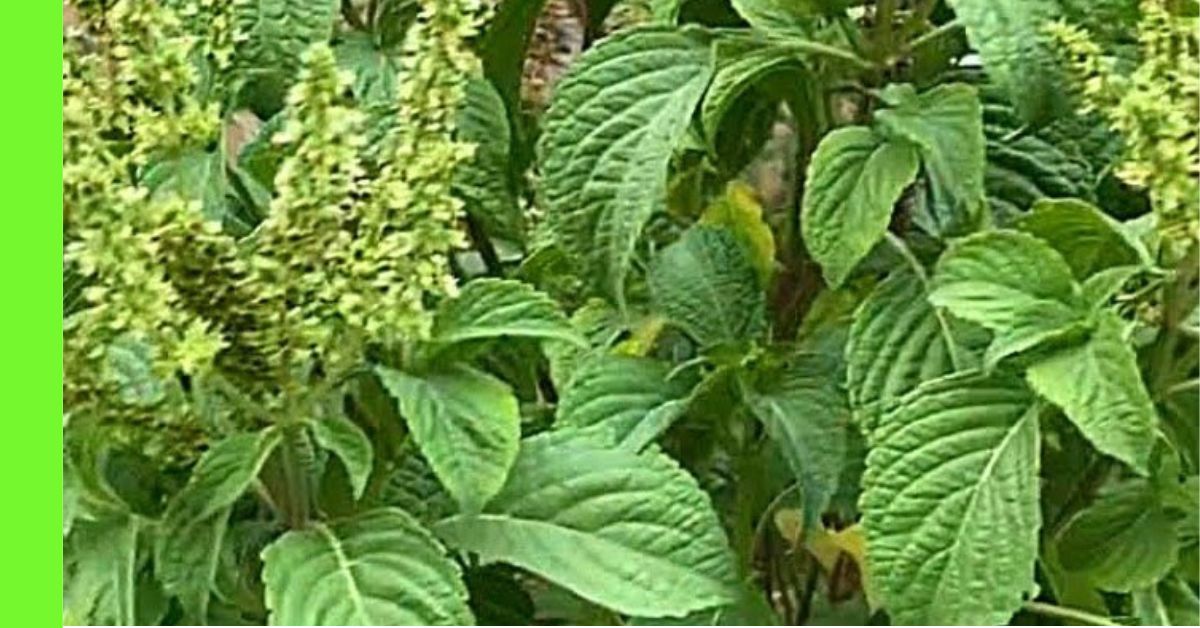- This topic is empty.
- AuthorPosts
- January 21, 2025 at 11:16 pm #543234

The world of natural remedies and superfoods is vast, and among the many plants celebrated for their health benefits, scent leaf and onions stand out.
Scent leaf, also known as Ocimum gratissimum, is a fragrant herb widely used in various cuisines and traditional medicine.
Onions, a staple in kitchens globally, are known for their distinct flavor and numerous health advantages.
Together, these two ingredients not only enhance culinary dishes but also offer a range of health benefits worth exploring.
1. Nutritional Profile of Scent Leaf
Scent leaf is packed with essential nutrients that contribute to overall health. Rich in vitamins A, C, and K, as well as various B vitamins, this herb supports immune function, promotes healthy skin, and aids in blood clotting.
The antioxidants found in scent leaf help combat oxidative stress in the body, which is linked to chronic diseases.
Additionally, its anti-inflammatory properties can alleviate symptoms of various conditions, making it a valuable addition to the diet.
2. The Role of Onions in Heart Health
Onions are often praised for their cardiovascular benefits. They contain compounds such as quercetin, which is known to help reduce blood pressure and lower cholesterol levels.
The anti-inflammatory properties of onions can also contribute to better heart health by reducing the risk of atherosclerosis.
Including onions in your meals can promote better circulation and support overall cardiovascular function, making them a smart choice for those concerned about heart health.
3. Digestive Health Benefits
Both scent leaf and onions play significant roles in promoting digestive health. Scent leaf is known for its ability to ease digestive issues, such as bloating and stomach cramps, thanks to its carminative properties.
It can stimulate digestion and help reduce gas formation in the intestines. On the other hand, onions are a great source of dietary fiber, which aids in maintaining a healthy gut and promoting regular bowel movements.
The prebiotics found in onions also support the growth of beneficial gut bacteria, further enhancing digestive health.
4. Antimicrobial and Antioxidant Properties
One of the standout features of scent leaf is its antimicrobial properties, which can help protect against various infections.
Traditional medicine often utilizes scent leaf for its ability to combat bacteria and fungi, making it a natural option for improving immunity.
Similarly, onions possess strong antimicrobial properties and have been shown to combat harmful bacteria in the gut.
Both ingredients are rich in antioxidants, which help neutralize free radicals in the body, thus reducing the risk of chronic diseases like cancer and diabetes.
5. Potential Benefits for Respiratory Health
The combination of scent leaf and onions may also provide relief for respiratory issues. Scent leaf is often used in herbal remedies to alleviate symptoms of colds and allergies due to its anti-inflammatory and expectorant properties.
Inhaling the aroma of scent leaf can help clear nasal passages and ease breathing. Onions, too, are known to be beneficial for respiratory health; they can help soothe coughs and reduce mucus production. Together, they can provide a natural approach to managing respiratory discomfort.
In conclusion, the health benefits of scent leaf and onions extend beyond their delightful flavors in culinary applications.
With their rich nutritional profiles, cardiovascular support, digestive health enhancement, antimicrobial properties, and potential benefits for respiratory issues, these two ingredients are powerful allies in promoting overall well-being.
Incorporating scent leaf and onions into your diet can not only elevate your meals but also contribute significantly to your health.
Whether enjoyed fresh in salads, cooked in soups, or brewed as herbal teas, the synergy of scent leaf and onions offers a holistic approach to nutrition and wellness.
Read Also:
- AuthorPosts
- You must be logged in to reply to this topic.

